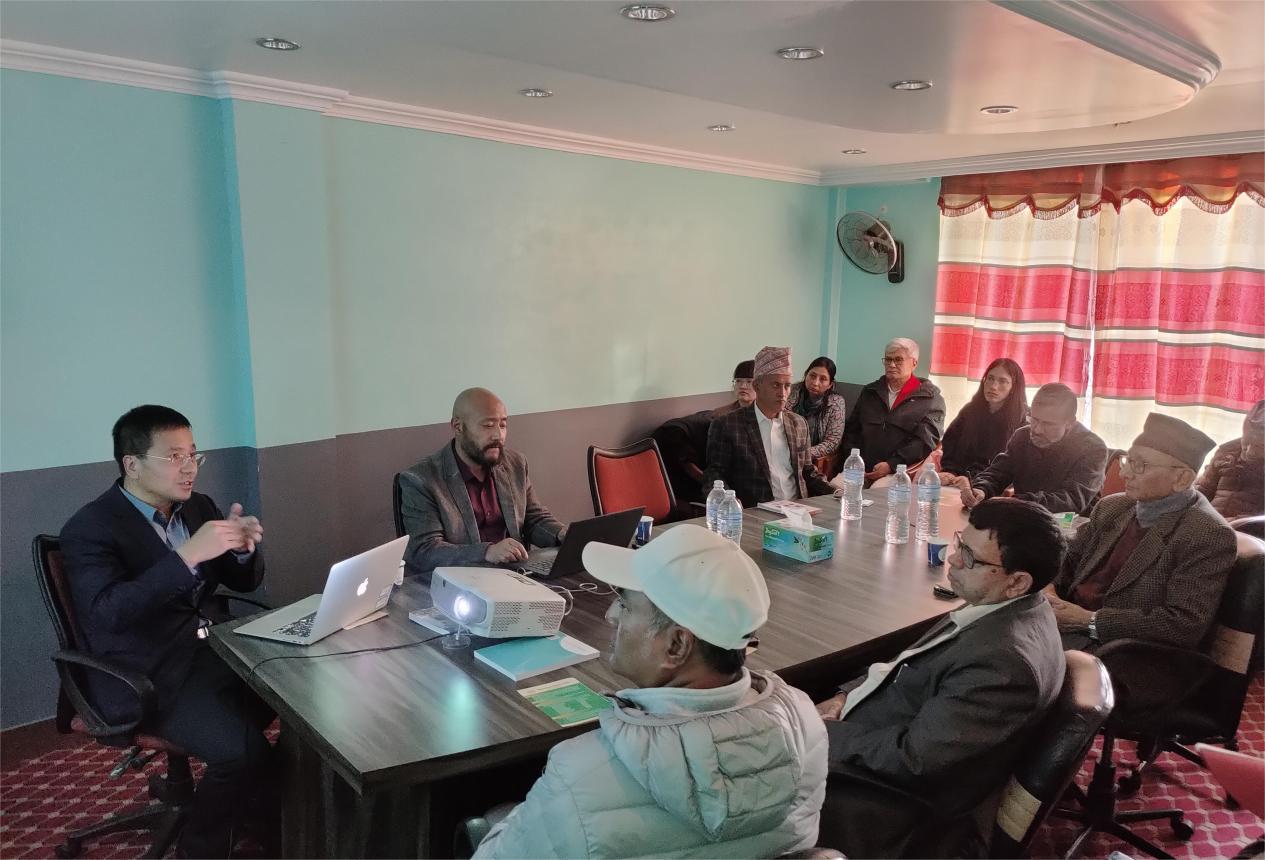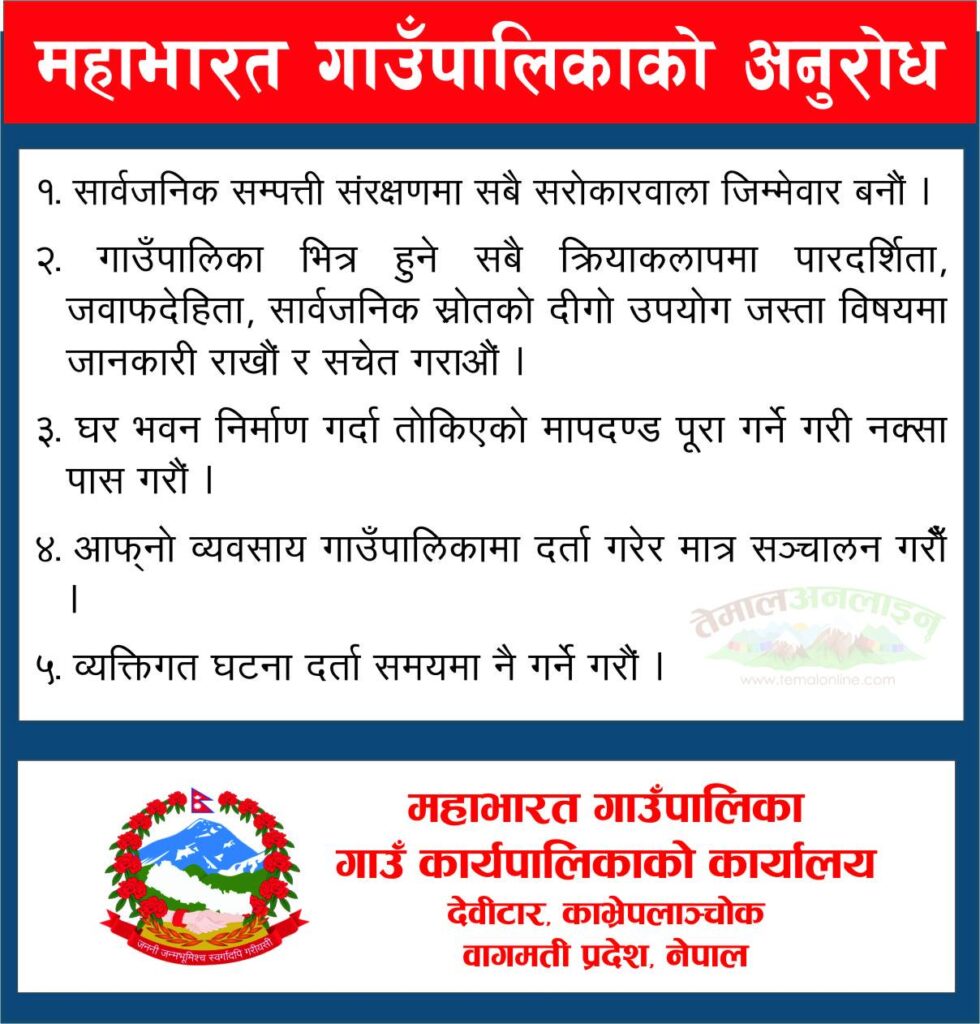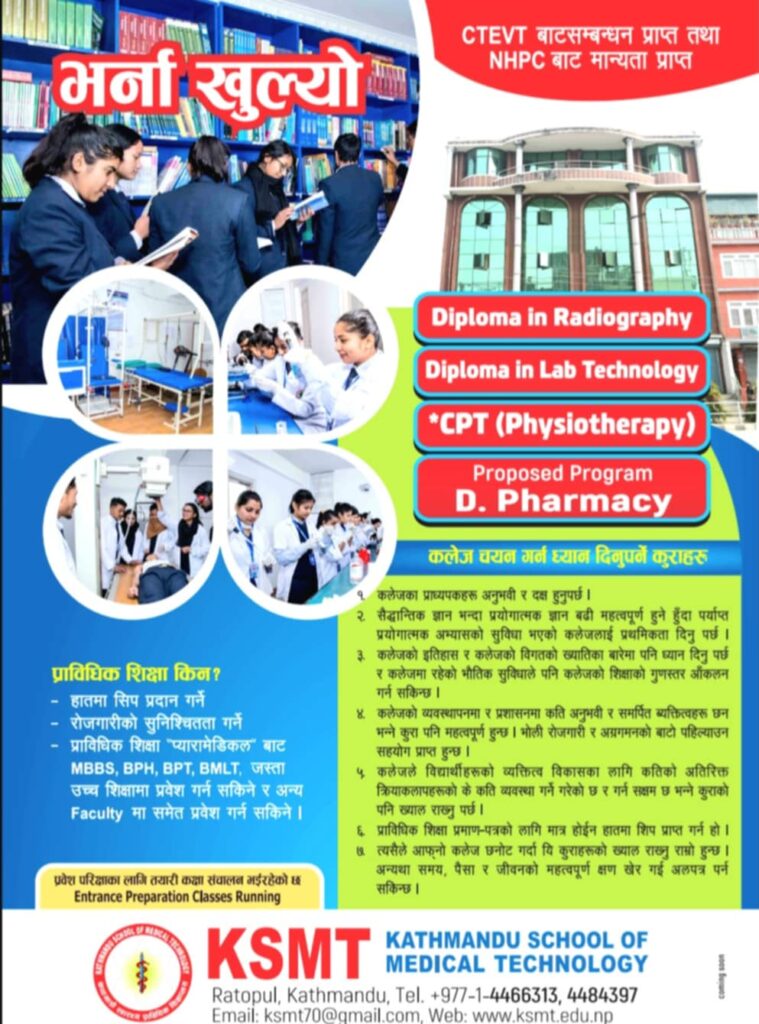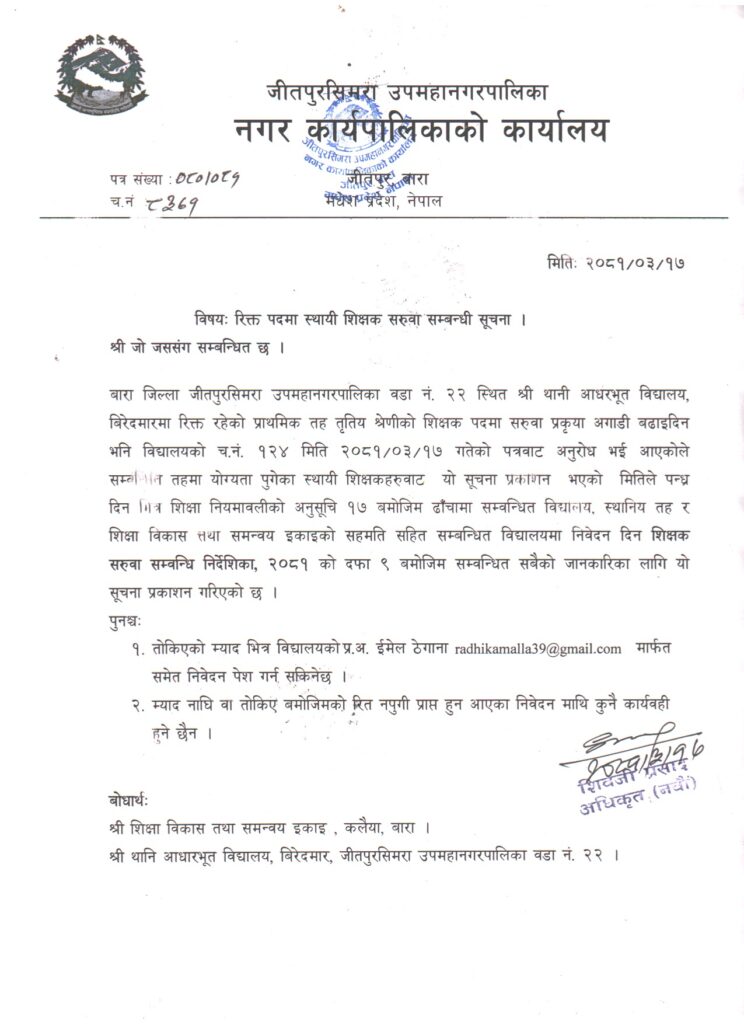यो सामग्री सुन्न प्ले थिच्नुहोस्
1x
प्लेब्याक गति- 0.5
- 0.6
- 0.7
- 0.8
- 0.9
- 1
- 1.1
- 1.2
- 1.3
- 1.5
- 2
Chinese-style Modernization and the Historical Achievements of Xizang. chinese-style modernization and the historical achievements of xizang. मूलखबर संवाददाता काठमाडौं an academic seminar titled “chinese-style modernization and the historical achievements of xizang” was organized in nepal by the xizang academy of social sciences of the xizang autonomous region, prc. the academic seminar “chinese-style modernization and the historical achievements of xizang” was organized by the xizang autonomous region academy of social sciences (xass) and took place in nepal on december 10. a presentation was given at the seminar by sun xiangjun, party secretary of xass and deputy minister of the publicity department of the communist party committee of the xizang autonomous region(xass). over twenty experts and scholars from the nepal china study centre, along with experts and scholars from south asia research institute, marxist theory research institute, contemporary tibetan studies institute, and religious studies institute of xass, attended the seminar, which was organized and hosted by the centre. from a worldwide viewpoint, sun xiangjun evaluated the trajectory of human modernization since the industrial revolution. he emphasized that, with a combined population of no more than one billion, very few wealthy nations had succeeded in modernizing. all developing nations are pursuing modernization, but they face obstacles and hurdles along the way. china is adamant about remaining independent and fully aware of its own developmental destiny. it has started down the path of modernization with chinese characteristics after decades of exploration. chinese modernity is distinguished by its massive population scale, which aims to bring wealth to all while highlighting harmonious cohabitation between spiritual and material civilizations as well as harmony between humans and the natural world. in addition, china seeks to overcome the drawbacks of western capitalist modernization through peaceful growth; it is equitable and fair as opposed to pursuing invasion or foreign expansion. china thinks about encouraging shared growth among other emerging nations in addition to accomplishing its own modernization objectives. sun xiangjun also provided a comprehensive overview of xizang’s historical accomplishments, stating that the socialist system with chinese characteristics and the direction of modern chinese marxism—xi jinping thought on socialism with chinese characteristics for a new era—are the foundation of xizang’s historic and dramatic transformations in a matter of decades. he emphasized the critical role that think tanks play in helping to create a community of shared future that includes people from china and nepal. in the xizang autonomous region, xass is a specialized academic institution that plays a significant role as a think tank for social sciences, philosophy, and xizang studies. it is eager to expand its collaboration and exchanges with think tanks, experts, and scholars in nepal, foster mutual learning and appreciation, and contribute appropriately to the development of a sino-nepalese community shared realization of modernization. former chairman of nepal’s commission for investigation of abuse of authority (ciaa), surya nath upadhyay, gave a speech. he pointed out that the academic briefing was very important and could help them understand china and its accomplishments better. it could also encourage academic exchanges between china and nepal. the rapid development of xizang has deeply touched leela mani poudyal, the former ambassador of nepal to china, who spoke during the exchange seminar. he first visited the region in 1991 and last returned in 2019, and he learned a lot from today’s briefing about the economy, historical and cultural heritage, public cultural service system, national unity, freedom of religion and belief, modern education system, public health, and ecological and environmental protection. he now has a more methodical, intuitive, and all-encompassing understanding of tibet’s current great development achievements in the areas of public health care, education, economics, historical and cultural heritage, national unity, freedom of religious belief, and the environment thanks to today’s presentation. “i am very grateful to dr. sun for his presentation on chinese-style modernization, the complete eradication of historic poverty in xizang by the end of 2019, cultural preservation, and environmental protection, which has a lot to teach us,” said ganesh raj joshi, a former secretary to the government of nepal. we want to have more opportunities for sharing and exchange, and we need to concentrate more on working together and communicating.”. according to upendra gautam, secretary general of the center for chinese studies in nepal, this is a very successful introduction, and the chinese people have great confidence because of china’s traditional culture and long history. he hopes that more opportunities for academic exchanges in this form will arise in the future.
Chinese-style Modernization and the Historical Achievements of Xizang
मूलखबर संवाददाता
काठमाडौं
An academic seminar titled “Chinese-style Modernization and the Historical Achievements of Xizang” was organized in Nepal by the Xizang Academy of Social Sciences of the Xizang Autonomous Region, PRC
The academic seminar “Chinese-style Modernization and the Historical Achievements of Xizang” was organized by the Xizang Autonomous Region Academy of Social Sciences (XASS) and took place in Nepal on December 10. A presentation was given at the seminar by Sun Xiangjun, Party Secretary of XASS and Deputy Minister of the Publicity Department of the Communist Party Committee of the Xizang Autonomous Region(XASS). Over twenty experts and scholars from the Nepal China Study Centre, along with experts and scholars from South Asia Research Institute, Marxist Theory Research Institute, Contemporary Tibetan Studies Institute, and Religious Studies Institute of XASS, attended the seminar, which was organized and hosted by the centre.

From a worldwide viewpoint, Sun Xiangjun evaluated the trajectory of human modernization since the industrial revolution. He emphasized that, with a combined population of no more than one billion, very few wealthy nations had succeeded in modernizing. All developing nations are pursuing modernization, but they face obstacles and hurdles along the way. China is adamant about remaining independent and fully aware of its own developmental destiny. It has started down the path of modernization with Chinese characteristics after decades of exploration. Chinese modernity is distinguished by its massive population scale, which aims to bring wealth to all while highlighting harmonious cohabitation between spiritual and material civilizations as well as harmony between humans and the natural world.
In addition, China seeks to overcome the drawbacks of Western capitalist modernization through peaceful growth; it is equitable and fair as opposed to pursuing invasion or foreign expansion. China thinks about encouraging shared growth among other emerging nations in addition to accomplishing its own modernization objectives.
Sun Xiangjun also provided a comprehensive overview of Xizang’s historical accomplishments, stating that the socialist system with Chinese characteristics and the direction of modern Chinese Marxism—Xi Jinping Thought on Socialism with Chinese Characteristics for a New Era—are the foundation of Xizang’s historic and dramatic transformations in a matter of decades.
He emphasized the critical role that think tanks play in helping to create a community of shared future that includes people from China and Nepal. In the Xizang Autonomous Region, XASS is a specialized academic institution that plays a significant role as a think tank for social sciences, philosophy, and Xizang studies. It is eager to expand its collaboration and exchanges with think tanks, experts, and scholars in Nepal, foster mutual learning and appreciation, and contribute appropriately to the development of a Sino-Nepalese community shared realization of modernization.
Former chairman of Nepal’s Commission for Investigation of Abuse of Authority (CIAA), Surya Nath Upadhyay, gave a speech. He pointed out that the academic briefing was very important and could help them understand China and its accomplishments better. It could also encourage academic exchanges between China and Nepal.
The rapid development of Xizang has deeply touched Leela Mani Poudyal, the former Ambassador of Nepal to China, who spoke during the exchange seminar. He first visited the region in 1991 and last returned in 2019, and he learned a lot from today’s briefing about the economy, historical and cultural heritage, public cultural service system, national unity, freedom of religion and belief, modern education system, public health, and ecological and environmental protection. He now has a more methodical, intuitive, and all-encompassing understanding of Tibet’s current great development achievements in the areas of public health care, education, economics, historical and cultural heritage, national unity, freedom of religious belief, and the environment thanks to today’s presentation.
“I am very grateful to Dr. Sun for his presentation on Chinese-style modernization, the complete eradication of historic poverty in Xizang by the end of 2019, cultural preservation, and environmental protection, which has a lot to teach us,” said Ganesh Raj Joshi, a former secretary to the government of Nepal. We want to have more opportunities for sharing and exchange, and we need to concentrate more on working together and communicating.”
According to Upendra Gautam, Secretary General of the Center for Chinese Studies in Nepal, this is a very successful introduction, and the Chinese people have great confidence because of China’s traditional culture and long history. He hopes that more opportunities for academic exchanges in this form will arise in the future.












